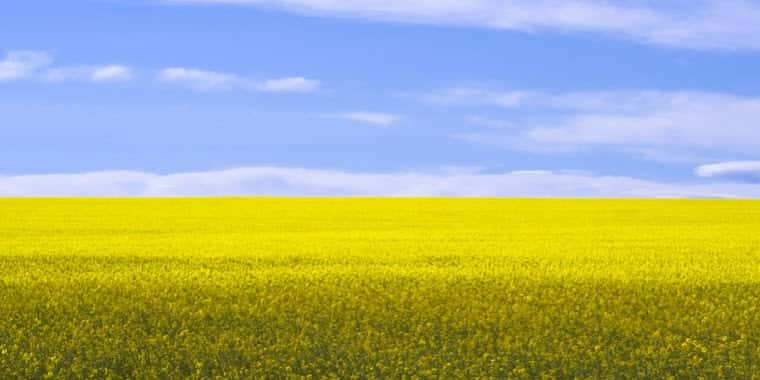Montana’s canola producers will soon have the opportunity to shape the future of their industry through a proposed statewide checkoff program aimed at boosting research, marketing, and education. The initiative—led by a producer-driven advisory committee—would apply an assessment on canola sales to fund Montana-specific research projects and help grow the canola industry.
Oilseed growers petitioned the Montana Department of Agriculture in 2024 to create an advisory committee to gauge public interest on the potential creation of an oilseed checkoff.
Kyle Ellis, a Conrad-area farmer and member of the advisory committee, said the decision to propose a checkoff that was focused only on canola, rather than all oilseeds, came from both the growth potential of canola and the unique research needs of canola growers.
“The canola industry has grown a little bit bigger than your other oilseeds,” Ellis said. “We’re seeing more people trying it, and there are more markets for it. We felt it made sense to focus research dollars on canola specifically—to help increase yields, expand acreage, and make it work better in our systems.”
Ellis, who’s been growing canola for four years, said it’s performed well on chem fallow acres, though drought has created challenges. “That’s where more research could really help us out—finding what works and what doesn’t,” he added.
Under the proposal, producers would pay an assessment of $0.10 per hundredweight, or $0.05 per bushel. That pencils out to roughly $1.00–$2.50 per acre, depending on yield. The advisory committee estimates that at current production levels, the assessment could raise over $265,000 annually—enough to fund several high-impact research trials across the state.
Tom Hagan, a farmer from Scobey and fellow advisory committee member, said the funds would go toward practical, production-focused projects. “We’re talking about things like winter canola trials, fertilizer studies, date of seeding—work that directly helps producers and encourage more people to get into canola,” Hagan explained.
The proposed checkoff is voluntary and refundable. Only canola growers will receive ballots in the mail to vote on the proposal.
Similar programs in Idaho and Washington have been in place for over two decades and have delivered measurable results for growers in those states—improving stand establishment, guiding fertilizer management, helping with blackleg disease control, and informing variety choices. The assessments in both Idaho and Washington are also $0.10/cwt.
In Montana, project funding decisions would be made by a five-member grower committee, supported by advisors from MSU, the Montana Department of Agriculture, and the canola industry. The committee will issue calls for project proposals each year, then vote on which ideas to fund based on relevance and impact.
Ultimately, the goal is to build a more resilient and profitable canola industry in Montana—one shaped by the people who grow the crop.
“We just really encourage any canola grower to give it serious consideration,” Hagan said. “This is a chance to invest in the future of canola in Montana—and you have a direct say in how it happens.”
###
Northern Ag Network



Great article! We support this initiative for Montana canola, particularly after seeing the benefits from the checkoff in Idaho and Washington.